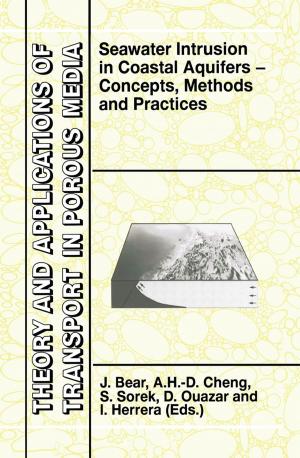Ethics, Law and the Politics of Information
A Guide to the Philosophy of Luciano Floridi
Nonfiction, Religion & Spirituality, Philosophy, Ethics & Moral Philosophy, Computers| Author: | Massimo Durante | ISBN: | 9789402411508 |
| Publisher: | Springer Netherlands | Publication: | August 3, 2017 |
| Imprint: | Springer | Language: | English |
| Author: | Massimo Durante |
| ISBN: | 9789402411508 |
| Publisher: | Springer Netherlands |
| Publication: | August 3, 2017 |
| Imprint: | Springer |
| Language: | English |
This book provides a detailed discussion of the theoretical and practical implications of the change driven by ICTs. Such a change is often much more profound than an emphasis on information technology and society can capture, for not only does it bring about ethical and policy vacuums that call for a new understanding of ethics, politics and law, but it also “re-ontologizes reality”, as propounded by Luciano Floridi’s philosophy and ethics of information. The informational turn is transforming our understanding of reality by challenging the conventional ways we have of thinking about our world and our identities in terms of stable and enduring structures and beliefs. The information age we inhabit brings to completion our self-understanding as informational systems that produce, process, and exchange information with other informational systems, in an environment that is itself made up of information. The present volume provides us with a better understanding of the normative nature and role of information, helping us to grasp the sense and extent to which informational resources serve as “constraining affordances” guiding our behaviours. It does so by delineating the background against which we build our beliefs about reality, make decisions, and behave, through our interactions with a multi-agent system that is increasingly dependent on ICTs. The book will be of interest to a vast audience, ranging from information technologists, ethicists, policy makers, social and legal scholars, and all those willing to embrace the following three tenets: we construct our world and ourselves informationally; by constructing our world and ourselves we thereby become aware of our limits; it is precisely these limits that make us become human beings.
This book provides a detailed discussion of the theoretical and practical implications of the change driven by ICTs. Such a change is often much more profound than an emphasis on information technology and society can capture, for not only does it bring about ethical and policy vacuums that call for a new understanding of ethics, politics and law, but it also “re-ontologizes reality”, as propounded by Luciano Floridi’s philosophy and ethics of information. The informational turn is transforming our understanding of reality by challenging the conventional ways we have of thinking about our world and our identities in terms of stable and enduring structures and beliefs. The information age we inhabit brings to completion our self-understanding as informational systems that produce, process, and exchange information with other informational systems, in an environment that is itself made up of information. The present volume provides us with a better understanding of the normative nature and role of information, helping us to grasp the sense and extent to which informational resources serve as “constraining affordances” guiding our behaviours. It does so by delineating the background against which we build our beliefs about reality, make decisions, and behave, through our interactions with a multi-agent system that is increasingly dependent on ICTs. The book will be of interest to a vast audience, ranging from information technologists, ethicists, policy makers, social and legal scholars, and all those willing to embrace the following three tenets: we construct our world and ourselves informationally; by constructing our world and ourselves we thereby become aware of our limits; it is precisely these limits that make us become human beings.















